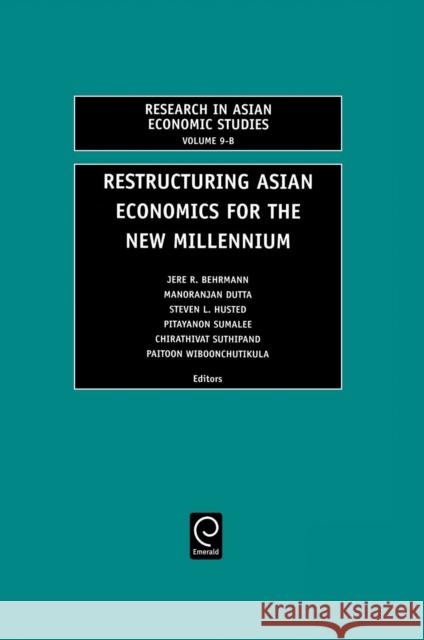Restructuring Asian Economies for the New Millennium » książka
Restructuring Asian Economies for the New Millennium
ISBN-13: 9780762307104 / Angielski / Twarda / 2001 / 490 str.
The Asian economic crisis and future development is a popular subject among academics and policy-makers worldwide. Several countries in Asia came to face severe economic recession in the wake of their financial and foreign exchange crisis which began in 1997. The recession was deep and the challenges for managers of respective economies for an optimum specification of monetary and fiscal policy guidelines became all too great. Many came to wonder whether the so-called "Asian Miracle" all of a sudden became a part of history. If so, how will Asia recover from the crisis and experience high growth and continuing development as in the past quarter of the century? Can such a crisis be forewarned? Which development paths should Asia seek so that the crisis will not be repeated in the future? In other words, the challenge is to formulate rational economic policies for Asia's newly industrialized/industrializing economies so that their industrialization and development can sustainably progress as Asia enters the Twenty-First Century. The book addresses the above issues by covering many topics including financial meltdown and industrial development, money and financial markets, exchange rates, capital flows, economic reforms, human capital development, impact of the financial crisis on growth and poverty incidence, as well as other development problems in Asia-Pacific countries. The subject of this book should be of great interest to scholars, policy makers and the general public who follow economic developments in Asia. It will contribute to a broader perspective and at the same time, a deeper understanding of the subject











